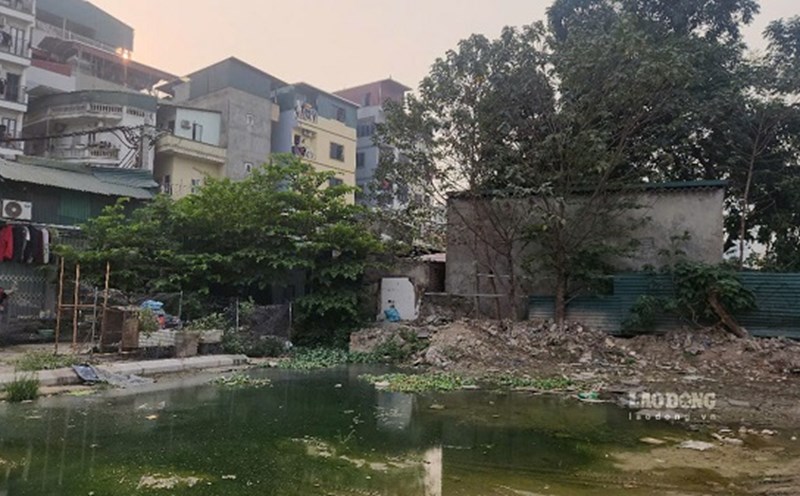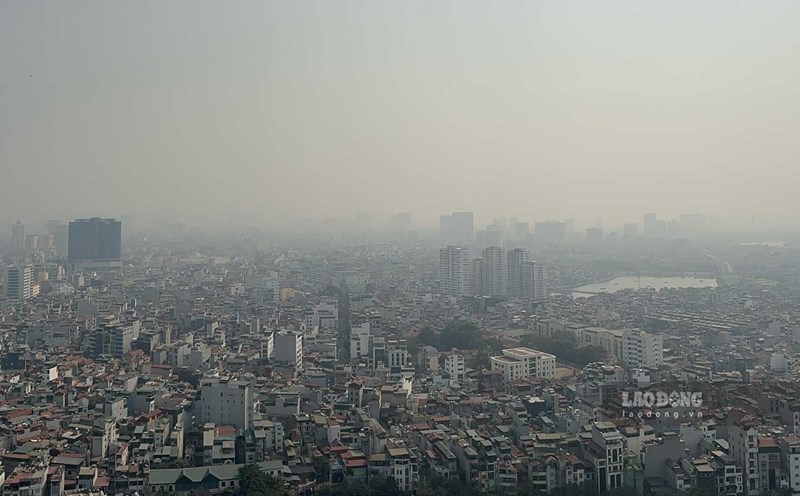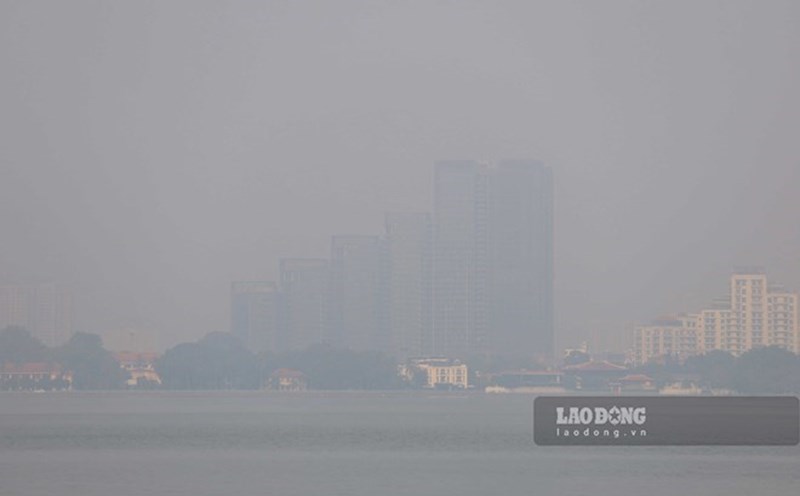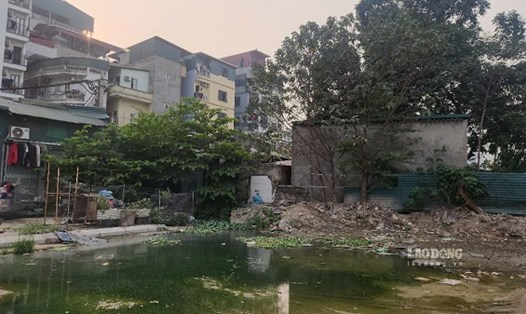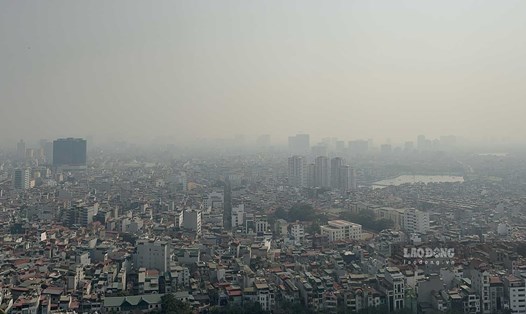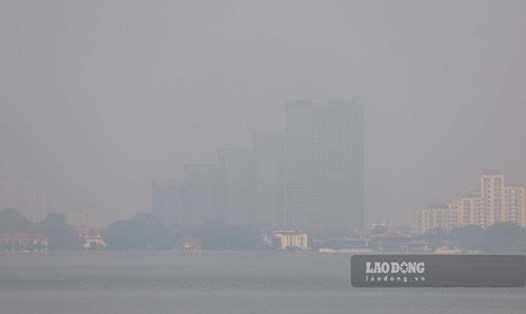On March 27, Party Central Committee member and Deputy Prime Minister Tran Hong Ha chaired a nationwide in-person and online meeting to discuss comprehensive and urgent solutions to handle air pollution in localities, especially Hanoi and Ho Chi Minh City - two major cities and the most heavily polluted air.
Deputy Minister of Agriculture and Environment Le Cong Thanh proposed to organize supervision of construction works (construction of urban areas; high-rise buildings; traffic works; public and utility works; works to renovate road surfaces and sidewalks), mandatory coverage of dust and spraying water to reduce dust.
Planning routes for trucks, controlling used vehicles, and enhancing public transport. Automatically monitor emissions from factories, strictly handle violations.
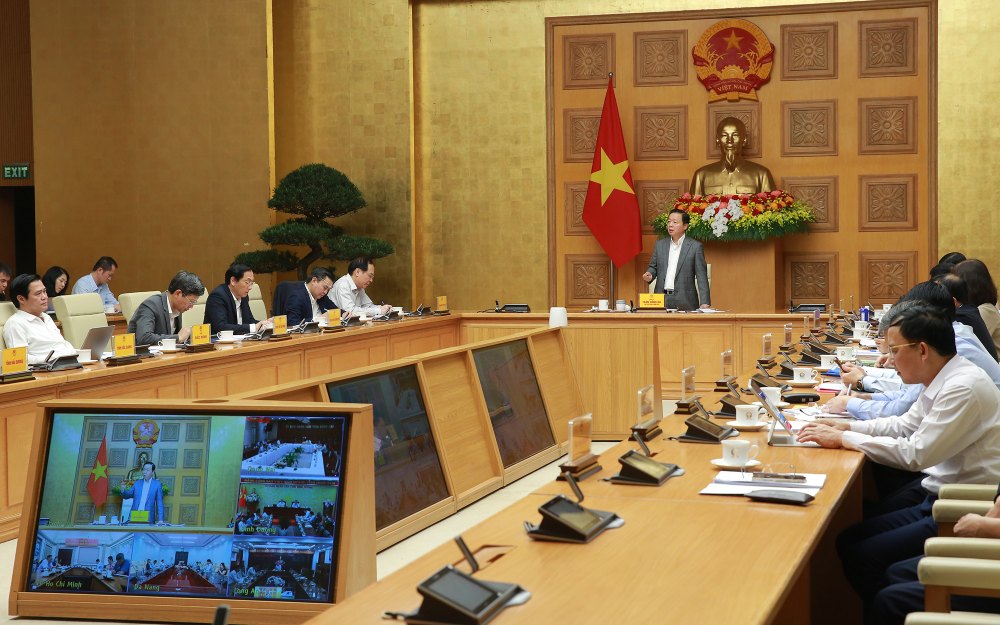
At the meeting, the Deputy Prime Minister emphasized that we have laws, but without concrete and drastic action, the situation will not change.
In particular, when big cities like Hanoi and Ho Chi Minh City are experiencing serious air pollution, the responsibility of authorities and local leaders must be clearly defined and taken timely action.
"We do not have much time to continue discussing, but must act right now, in order to improve air quality indicators in the coming month, the third quarter, and the end of the year to protect people's health," the Deputy Prime Minister directed.
In particular, environmental pollution and air pollution in some major cities, at certain times, have seriously affected people's health.
First of all, the Ministry of Agriculture and Environment shall preside over and coordinate with ministries, branches and localities to comprehensively assess the picture of air pollution according to international standards nationwide as well as in each urban area, each city, especially Hanoi and Ho Chi Minh City.
In which, it pointed out the sources of air pollution (traffic, construction, waste treatment, industrial and agricultural activities); deeply analyzed the relationship between air pollution and health so that people can correctly perceive, support and participate in implementation.
The Ministry of Construction studies and issues regulations, standards, norms, unit prices for the treatment and recycling of construction waste and mechanisms and policies to support enterprises in treating construction waste (taxes, interest rates, land...).
Review the conditions and legal basis for implementing motorbike emission inspection, sanctions for handling substandard vehicles, supporting vehicle owners to install emission reduction equipment; tighten monitoring of civil and industrial construction works, especially in urban areas, using cameras for vehicles entering and leaving the construction site.
Increase sanctions for units collecting and treating solid waste and hazardous waste that are not in accordance with regulations, spreading pollution into the air, and in necessary cases, criminal proceedings.
The Ministry of Industry and Trade coordinates with localities to review and evaluate sources of air pollution from industrial production, especially in industrial clusters across the country; propose plans to relocate facilities that cause serious pollution in the inner city area, or convert technology and have support policies.
The Ministry of Public Security focuses on handling serious violations of the treatment of solid waste and hazardous waste that pollute the air.
The Ministry of Public Security directs local police to coordinate in managing traffic safety and order appropriately, adding authority to the traffic police force, local police to monitor and handle violations in the field of traffic and construction causing air pollution.

